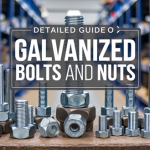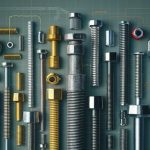Metric fasteners of the M6 type are extensively used in the manufacturing, construction, and engineering sectors, among other industries. What distinguishes M6 screws from other kinds? Their size is the reason.
An “M6” screw, as suggested by its name, has a 6mm diameter, which makes them ideal for accurately securing objects together in medium load situations. Stainless steel is one of the materials available for these screws (for greater corrosion resistance). They come in a variety of head designs, but flat heads are particularly notable because they enable sitting flush against surfaces, giving the appearance of a clean finish. Always take particular demands into account when selecting a screw for your project. By doing this, you may maximize both performance and the assembly’s lifetime.
Overview of M6 Nuts and Bolts
The M6 fasteners are available in different materials. The choice of material frequently depends on the environment in which the fasteners will be used. For instance, stainless steel M6 bolts are ideal for outdoor projects, where resistance to rust and withstanding is crucial.
M6 Nuts and Bolts Explained: Types
Let’s delve into the most common types of M6 bolts, including hex head, socket cap, and a few others that might be essential for your needs.
One can get M6 fasteners in various materials which include carbon steel, stainless steel and nylon. Each offers distinct advantages. Some of them are lightweight quality or resistant to corrosion. While choosing the material, it depends on the environmental conditions where the fasteners are used. For instance, stainless steel M6 bolts are perfect for outdoors. In this, resistance to rust is an important factor.
Socket Cap Bolts
In projects that need refined looks, socket cap bolts are used. For projects whose space is confined, socket cap bolts can be a great choice. The bolts appear to be a cylindrical head which has a socket drive. It lets convenient access to tight zones. It is used in machinery and automotive industries.
Hex Head Bolts
One of the most recognized bolts is the hex head bolts which feature a hexagonal shape. It is used to make loose or tight the wrench. Owing to the robust design, hex head bolts can be used in various applications. Get top-quality hex head bolts from experienced bolts and nuts suppliers. Hex head bolts can be obtained at budget-friendly rates. Just keep in mind to get them from a reputed and trusted nuts and bolts dealers.
Flange Nuts
Flange nuts are known for their functionality and they are also known for a myriad of benefits. There is a built-in washer in flange nuts. Moreover, the base of the flange nuts is flat. The design can properly take the load. It also helps avert damage to the surface that fastens it. M6 flange nuts can be used in most applications, especially in a large surface portion.
Lock Nuts
Locking nuts which are also known as lock nuts are designed to withstand loosening under heavy loads. Lock nuts are an imperative part in applications in which movement is the prime aspect.
What Is an M6 Screw?
A metric fastener with a nominal diameter of 6 millimeters is called an M6 screw. It is often employed when precise and robust fastening is required, and it is defined by the thread pitch and length.
This screw will have dimensions that are compatible with other metric fasteners across the globe since the letter “M” in “M6” stands for the metric system.
This screw size is so adaptable that it may be utilized in a wide range of sectors, including manufacturing, building, and engineering. It even performs well with modest loads!
Where Is M6 Screw Usage Common?
M6 fasteners are used extensively in a variety of sectors due to their durability and reliability. In engineering, these screws are essential for holding together elements that are under mild pressure or tension during machine assembly.
They are often used by automotive experts to fasten different engine parts and other precise assemblies.
M6 bolts are used in construction for the installation of metal frames, bracket fastening, and composite material fixing.
They are ideal for these kinds of applications because of their ability to tolerate varying degrees of stress or torque. Because they do not corrode, stainless steel M6 screws are highly valued on the outside.
The Bolts and Nuts Suppliers in India industry use M6 screw threads extensively when making electronic devices like laptops and phones; other domestic appliances that need this kind of fastener include refrigerators and washing machines.
This is due to the strong engagement that its tiny thread pitch offers, which is required to hold pieces that need precise alignment and stability together securely.
Is It Possible to Use M6 Screws for Hardware Mounting?
Yes, M6 screws may be used to install mounting hardware. They may be utilized for a wide range of purposes because of their strong and versatile design. This involves attaching different hardware components. It is often used to attach brackets, panels, and electrical equipment since it has the largest thread diameter and pitch compared to other metric screws.
The primary sources of this material were Google searches. M6 screws are great for all kinds of mounts that one would require since, in addition to their strength in terms of holding power, they come in various materials like carbon steel or stainless steel, so you can use them inside or outside your home without worrying about rusting, etc.
M6 Nuts and Bolts specifications
M6 nuts and bolts are a type of fastener that meets the ISO 4017 and ISO 4032 standards. Here are the specifications:
M6 Bolt:
- Diameter: 6 mm
- Thread pitch: 1 mm
- Thread length: varies depending on the bolt type (e.g., full thread, partial thread)
- Head type: hexagonal (ISO 4017)
- Drive type: hexalobular (ISO 10664)
- Material: steel (grade 8.8 or 10.9), stainless steel (A2 or A4)
- Tensile strength: 800-1000 MPa (depending on the material grade)
M6 Nut:
- Diameter: 10 mm (across flats)
- Thickness: 6 mm
- Thread pitch: 1 mm
- Material: steel (grade 8 or 10), stainless steel (A2 or A4)
- Type: hexagonal (ISO 4032)
- Tensile strength: 800-1000 MPa (depending on the material grade)
Torque values:
- Tightening torque: 20-30 Nm (depending on the material grade and application)
- Loosening torque: 15-25 Nm (depending on the material grade and application)
Other specifications:
- Surface finish: zinc-plated, chrome-plated, or stainless steel
- Certification: ISO 9001, CE marking (depending on the manufacturer)
Read Also:






